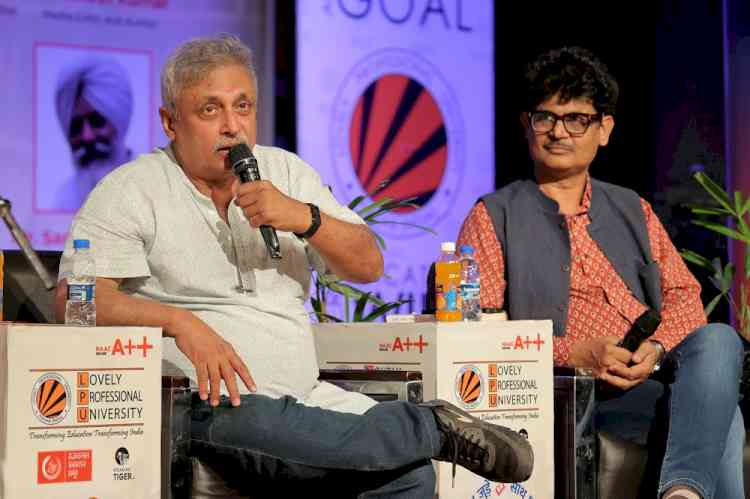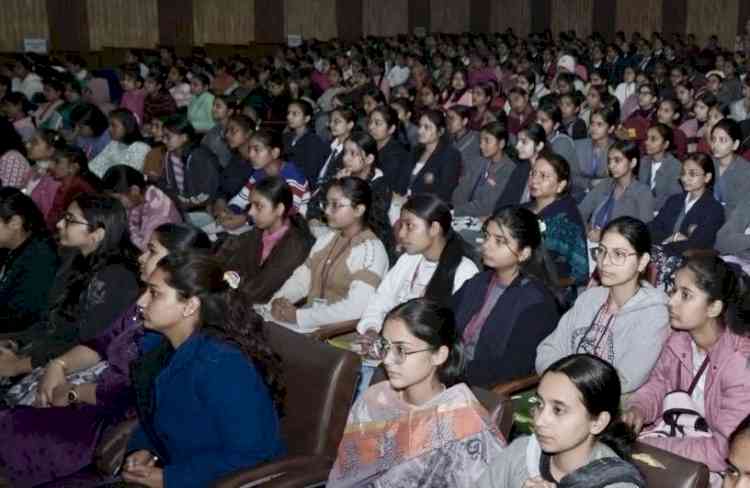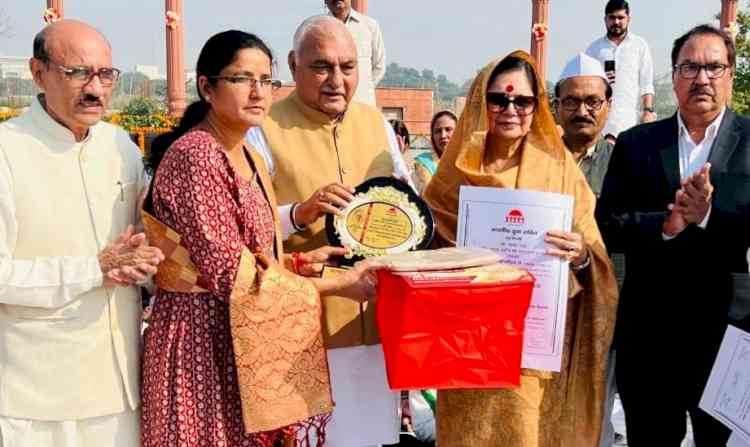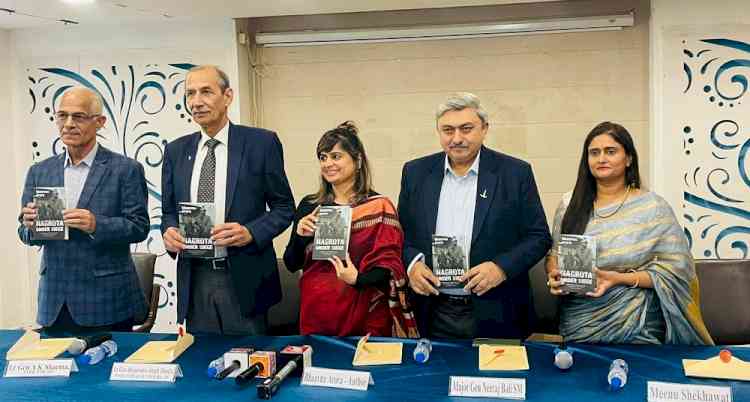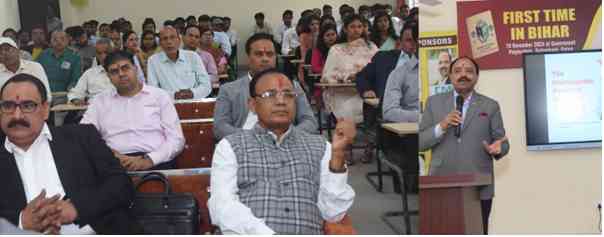8th Annual J.C. Anand Memorial Lecture
Professor Manish Jha from the Tata Institute of Social Sciences, Mumbai delivered the 8th Annual J.C. Anand Memorial Lecture, which was organised by the Department of Political Science, Panjab University today.
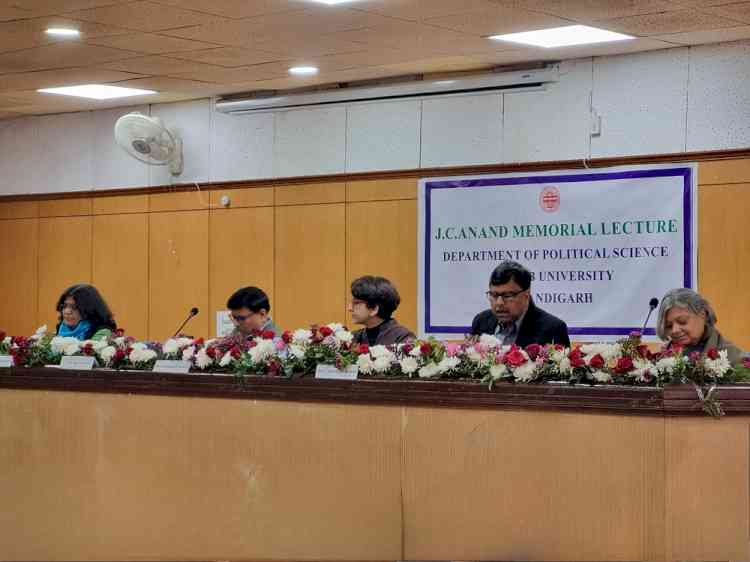
Chandigarh, March 2, 2024: Professor Manish Jha from the Tata Institute of Social Sciences, Mumbai delivered the 8th Annual J.C. Anand Memorial Lecture, which was organised by the Department of Political Science, Panjab University today. His lecture – titled ‘Populism as Political Practice: Interrogating Social Justice and Social Policies’ – drew an audience comprising students and faculty from different departments of the University, distinguished students of Professor Anand, and other dignitaries. Prof Pampa Mukherjee, Chairperson of the Department gave the welcome address and spoke about the memorial lecture series that started in 2016 when Professor Arun Grover was the Vice-Chancellor of the University. Daughters of Professor Anand, Ms. Urvashi Gulati and Ms.Keshni Anand Arora,and their family members were present on the occasion
Professor Rumina Sethi, Dean University Instructions, was the chief guest for the occasion and the lecture was chaired by Professor Ashutosh Kumar. Setting the stage for the lecture, Professor Sethi distinguished between the two meanings associated with populism; namely populism as egalitarian welfare policies for the disadvantaged sections of society, and populism as a political art of whipping up societal passions directed against an enemy. While cautioning against the dangers of the latter in the contemporary Post-Truth era, she advocated for the first meaning of the term.
Professor Jha’s lecture outlined the definition, meaning and manifestation of populism and populist politics in a global and national context. He argued that in a democracy, populism is intended to give ordinary people a chance to counter elites through representative politics. Since it is rooted in the idea of popular will, it is comfortable aligning itself to any ideology that could be broadly appealing to a majority. Hence it is important to distinguish between the different varieties of populism, and in the contemporary context this entails going beyond the common distinction between left-wing and right-wing populism made in the academic literature. While appreciating that populism hinges upon charismatic leaders having direct, unmediated access to the masses, Professor Jha drew attention to the different forms of leadership traits and communication strategies witnessed in the variants of populism. His lecture in particular focused on the history of political practice in India’s Hindi heartland, in which the idea of ‘samajiknyaya’ (social justice) through instrumentalities of caste played a prominent role. He highlighted the ways in which the ideas of welfare and social justice are invoked and converted to government policies at the levels of both regional and national politics.


 City Air News
City Air News 

